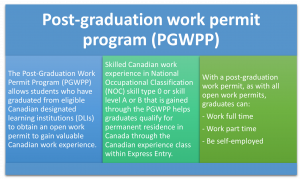Canada is an appealing country to move to with its stunning and diverse landscapes, outstanding educational system, and great job opportunities. Immigrants are welcomed with open arms and the country ranks amongst the best countries in the world for quality of life.
More and more people are moving to Canada, as the country is welcoming 1.3 million new immigrants up until 2024 as part of their efforts in keeping their population growing and supporting their labour markets.
Ways to Immigrate to Canada in 2023
What’s the right path for you to immigrate to Canada will depend on your unique circumstances, background, and connection to the country. There’s no easy way to immigrate to Canada – most application processes are made up of multiple steps and requires you to fulfill certain eligibility criteria.
Whether you’re looking for a change in scenery or more stable employment opportunities, this article will cover the following nine different pathways to immigrate to Canada:
- Business Immigration
- Express Entry Options
- Canada Provincial Nominee Program (PNP)
- Studying in Canada
- Citizenship
- Family Sponsorship Visas
- Temporary Visas
- Quebec Immigration
- Work permits
The article will give you an overview of each pathway. The costs, eligibility criteria, inclusions, and application processes all depend on your individual situation and chosen pathway to immigrate to Canada.

Business Immigration
Express Entry
Provincial Nominee Program
Study Path to PR
Family Sponsorship
Business Immigration
Federal Program Business Immigration
The federal government of Canada provides immigration programmes for people who want to establish a business or work for themselves in Canada.
A federal or provincial programme for business immigration may be a great option if you have prior expertise running or owning your own company.
There are also a number of PNPs (Provision Nominee Programs) designed specifically for foreign applicants interested in launching a company in a particular Canadian province.
These programs usually requires a significant amount of money invested in the business you intend to stat in the country. There are many Provisional Nominee Programs that offer entrepreneur programs for less populated areas that require smaller investments.
Quebec Business Immigration
If you are interested in investing in, starting a new business or buy an existing business in the province of Quebec, you can choose from one of the following programs:
Entrepreneur Program
The program operates in two different streams, stream 1 and steam 2:
Stream 1:
The first stream of this program is for foreign entrepreneurs who want to start and run a business in Quebec. The business project can be undertaken up to three of whom can be foreign nationals applying to the same immigration program.
Stream 2:
This stream is for entrepreneurs who wishes to create a new business or acquire an existing business and manage the business operations. As part of the application, applicants will need to make two financial deposits:
- Security Deposit: CAD$200,000 serving as insurance that the business will be created – Deposit will be refunded when the business plan is carried out successfully
- Start-up Deposit: CAD$300,000 if the business is created in Montreal and CAD$200,000 for business created outside of Montreal. This start up deposit must be used to set up the business.
For full details and eligibility requirements, click here.
Investor Program
Foreign investors who want to invest in a business in Quebec may be eligible for this program if they meet the following requirements:
- Score at least 40 points under all factors in the Quebec Economic Class selection grid for the Investor Program – Cut-off score of 10 points for management experience and 25 points for investment are mandatory
- Have a net asset of at least CAD$2 million. This amount cannot include amounts received by donation less than six months before application submission (can include partner’s net worth)
- Have at least two years in the five years preceding the application of management experience in a legal farming, commercial, industrial business, legal business where there are at least two full-time employees (excluding the investor) or at an international or a government agency
- Sign an agreement to invest CAD$1,200,000 with a financial intermediary (broker or trust company) authorised to participate in the Quebec Investor Program.
For full details and eligibility requirements, click here.
Self-Employed Worker Program
Applicants who are over the age of 18 years old, completed Canadian equivalent of at least a secondary school general Diploma and have the intention and ability to become self-employed in Quebec can apply for this program if they meet the following requirements:
Score at least 35 points under all factors in the Quebec Economic Class selection grid for the Self-Employed Worker Program
- Have at least two years of self-employed experience in the profession or trade they intend to practice in Quebec
- Have a net asset of at least CAD$100,000 (can include partner’s net worth)
- Make a start-up deposit of CAD$25,000 if you intend to practice outside of Montreal or CAD$50,000 if you intend to practice in Montreal.
For full details and eligibility requirements, click here.
Quebec Business Immigration
Express Entry to Canada
Express Entry is one of Canada’s most popular Immigration programs due to the online express application process and the possibility of getting permanent residency in as soon as six months.
If you have skilled work experience, you may be eligible to apply for the Express Entry as Canada aims to select skilled immigrants as permanent residents based on their skills and ability to contribute to Canada’s economy.
Express Entry itself is not an immigration program but is an online system that manages applications for three economic immigration programs:
- Federal Skilled Worker Program (FSW)
- Federal Skilled Trades Program (FST)
- Canadian Experience Class (CEC)
The Federal Express Entry program evaluates applicants based on points, where the highest point scorers receive an invitation to apply for PR. Some factors that points are awarded for include (but are not limited to):
- Age
- Education
- Language skills (English and/or French)
- Canadian work experience
- Commitment to Canada
- Job offer
You can read more of each program in detail, including all the eligibility criteria, by clicking on each hyperlink.
The Express Entry is divided into three steps that involves:
- Creating an Express entry profile
- Submitting your profile
- Applying for permanent residence after receiving an invitation.
Your profile is scored by Canada’s Comprehensive Ranking System (CRS). Before submitting your profile, you must first be deemed eligible under one of Canada’s above three federal streams.
To estimate your score for Express Entry, click here.
Provincial Nominee Program
The Provincial Nominee Program is a migration pathway for those who want to obtain Permanent Residence status in Canada and live in a specific province.
Each province and territory have its own “streams” (immigration programs that target certain groups) and requirements. For example, in a program stream, provinces and territories may target:
- Students
- Business people
- Skilled workers
- Semi-skilled workers
The provinces then pick candidates from the Express Entry pool who meet their province-specific labour market needs. The Canadian provinces that applicants can apply to are:
- Alberta
- British Columbia
- Manitoba
- Nova Scotia
- New Brunswick
- Ontario
- Prince Edward Island
- Newfoundland and Labrador
- Northwest Territories
- Saskatchewan
- Yukon
You can read more about migrating to each province by clicking on the province you want to immigrate to.
Study
Canada has long been a top destination for international students from around the globe. Once you have decided to choose a Canadian school or university to study at, you first need to obtain a student permit to study in Canada.
The study permit is not a visa and doesn’t let you enter Canada. You may also need a visitor visa or and electronic travel authorization (eTA).
To be eligible to obtain a study permit, you must be enrolled in a Canadian Designated Learning Institution (DLI). All primary and secondary schools in Canada are designated learning institutions. If you are studying post-secondary program, you must ensure that your chose school is in the DLI list. Each provinces have their own list of DLI. To see a list of DLI for each province, click here.
You can read more about studying in Canada, including obligations and eligibility criteria, by clicking here.
Post-graduation work permit program (PGWPP)
You can read more about the PGWPP program, including eligibility criteria and eligible programs and institutions, by clicking here.
Citizenship
Canada is a country that embodies multiculturalism and diversity and encourages newcomers to achieve their full potential by supporting their integration and active participation in social, cultural, economic and political affairs.
Canadian citizens have more rights and privileges such as access to healthcare, social services, and support under law. They have the right to vote during elections and live, work, travel, and study anywhere in the country. Citizenship cannot be removed or revoked.
There are 3 main ways to become a Canadian citizen:
- By birth: In most cases, if you are born in Canada you are automatically a Canadian citizen at birth.
- By descent: If you are the child of a Canadian citizen but are born overseas, you will generally be granted Canadian citizenship
- By grant: If you are a non-citizen of Canada and have lived in Canada for a given period of time (see residency requirements here), you can apply to become a Canadian citizen (through naturalisation)
You can read more about the application process and eligibility by clicking here.
Family Sponsorship Visas
Canada is a country that welcome relatives of its citizens or permanent residents to reunite. You can sponsor certain relatives to come to Canada if you’re at least 18 years old and a:
- Canadian citizen or
- Person registered in Canada as an Indian under the Canadian Indian Act or
- Permanent resident of Canada
Your relatives can live, study and work in Canada if they become permanent residents of Canada.
There are several types of family visas for you to choose from, depending on who you would like to sponsor:
- Spouse/De Facto partner
- Child (adopted or biological)
- Parents and Grandparents
- Relatives such as siblings, nephew, niece, or grandchild
Read more about Canadian Family Sponsorship Visas by clicking here.
Other types of Family Visas
Parents and grandparents sponsorship visa
If you submit the interest to sponsor form and you’re invited to submit a complete application, you can sponsor your parents and grandparents to become permanent residents of Canada.
If you do, you must:
- support them and their dependants financially
- make sure they don’t need social assistance from the government
You can learn more about this visa and check the eligibility criteria by clicking here.
Parent and grandparents super visa
If you, as parents or grandparents of Canadian citizens or permanent residents, are not eligible for Parents and Grandparents sponsorship visa, you might consider applying for a super visa. A super visa lets you visit your children or grandchildren for up to 2 years at a time. It’s a multi-entry visa that provides multiple entries for a period up to 10 years.
If you want to stay for 6 months or less, apply for a visitor visa.
You can learn more about this visa and check the eligibility criteria by clicking here.
Canada Caregiver Programs
If you are a caregiver who wants to migrate to Canada, you can do so through Canada’s visa programs that enable eligible caregivers to work temporarily or permanently in the country. The two programs that are currently available for caregivers are:
- Home Child Care Provider Pilot – This program is designed for those who wants to work as a home childcare provider (National Occupational Classification code 4411).
- Home Support Worker Pilot – The Home Support Worker Pilot is suitable for those who have work experience or want to work as a Home Support worker (National Occupational Classification code 4412).
You may be able to apply for permanent residence through the Home Child Care Provider Pilot or Home Support Worker Pilot if you:
- meet the eligibility requirements, and
- have a job offer to work in one of these occupations
You can learn more here about the Canada Caregiver Programs here.
Temporary Visas
Quebec Immigration
Regular Skilled Worker Program
Unlike the Federal Skilled Worker Program Quebec does not have a Provincial Nominee Program (PNP), but the province has set its own requirements for immigrants who want to migrate to Quebec to work and live.
Skilled workers who meet the criteria for age, education, work experience, language skills in French and English may be eligible to apply for Canadian permanent residency through the Regular Skilled Worker Program (RSWP).
You can read more about the program, application process, points system, and selection criteria here.
Quebec Experience Program (PEQ)
The Programme de l’expérience québécoise (PEQ – Québec experience program) is for you if you are a foreign student who is a Québec graduate or a temporary foreign worker.
It allows you to obtain a Québec selection certificate to settle in Québec permanently.
You may submit an application if you meet all of the program’s conditions. This program is a pathway for you to apply for a Quebec Selection Certificate (certificat de sélection du Québec), which makes you eligible to apply for Canadian permanent residency.
You can read more about the program, common criteria for the program, and the application process by clicking here.
Canadian Work Permits
Rural and Northern Immigration Pilot (RNIP)
The Rural and Northern Immigration Pilot is a community-driven program. It’s designed to spread the benefits of economic immigration to smaller communities by creating a path to permanent residence for skilled foreign workers who want to work and live in one of the participating communities. You can learn more about the program, including the participating communities, by clicking here.
Temporary Foreign Worker Program (TFW)
With the population of only 38.27 million (2021), Canada is still suffering from skilled labour shortage. In order to tackle this issue, the Canadian government has put the Temporary Foreign Worker program in place to enable Canadian employers to seek employees from overseas.
There are several schemes in this program:
- High-wage Workers
- Low-wage workers
- Global Talent Stream
- Foreign Agricultural Workers
- In-home Caregivers
- Foreign Academics
You can read more about each program by clicking here.
Open Work Permit
An open work permit is available to people who want to work in Canada. This is suitable for those who do not have a job offer from any employers, and who do not want to tie their job with a particular employer or location. This work permit lets its holder to work temporarily in Canada and gain more local experience to prepare for their permanent residency.
Benefits of this visa includes but is not limited to:
- Allow its holders to work for any employer of their choice, at any location in Canada.
- Give holders opportunity to earn experience in Canada.
- Applying for an open work permit does not require a Labour Market Impact Assessment, and therefore, processing time is shorter.
- No job offers needed
You can learn more about the eligibility criteria by clicking here.
International Experience Canada (IEC)
International Experience Canada is a set of programs which offer young people with the opportunity to travel and work in Canada for up to 24 months, depending on which country the applicants are coming from. Your country must be a participating country in the program. To see the full list of participating countries, click here.
There are 3 different pools in this program:
- Working Holiday Program – suitable for someone who wants to travel and explore Canada and work to earn money.
- Young Professionals – This program is suitable for those who wants to earn professional work experience in Canada.
- International Co-op – his program enables international students to do an internship or work placement in Canada to complete their post-secondary education courses.
Depending on the relationship between Canada and the participating countries, some countries might be offering one, two, or all three programs.
To learn more about each program, eligibility criteria and application process, click here.










Top in demand jobs in Canada for immigrants
Temporary Resident to Permanent Resident (TR to PR) Pathway Canada
How to Immigrate to Canada
Moving to Canada from the US
New Alberta Express Entry Stream – Accelerated Tech Pathway